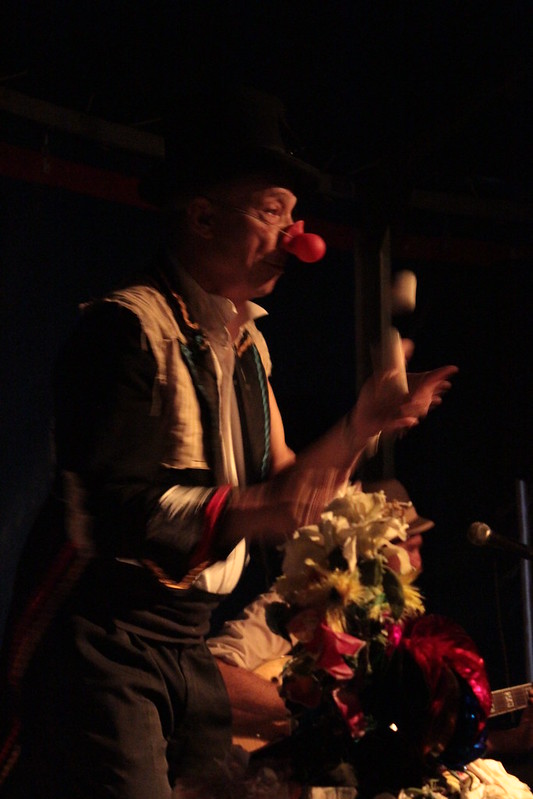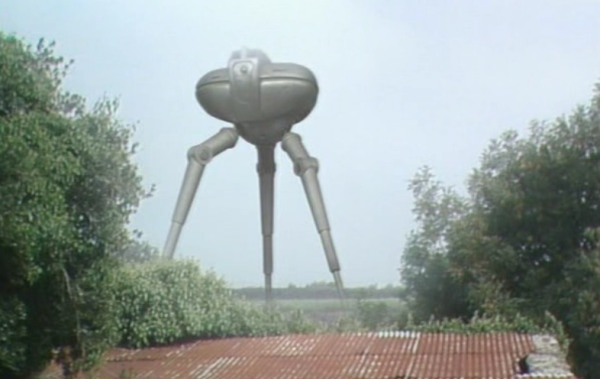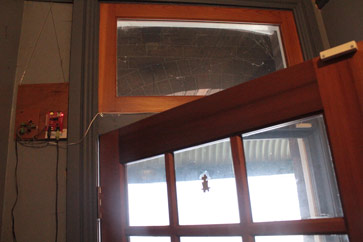“None of the wicked will understand, but those who are wise will understand”
(Daniel 12:10, NIV)
Christ’s Soon Return: The Overwhelming Evidence
The Importance of the End of this Millennium
by Jim Bramlett
The year A.D. 2000 is almost here. It is not just the end of a decade. Not just the end of a century. But we are one of the very few generations to ever see the end (and beginning) of a millennium. What an incredible and historic time to be alive! But could A.D. 2000 be much more significant than most of us can even imagine? Biblical prophecy fulfillment is rushing to a climax. Throughout history, according to researchers, both Christian and Jewish writers looked to this very time — not to the year A.D. 1000, or A.D. 3000, or A.D. 4000 or any other time — but surprisingly to the end of this present millennium, approaching A.D. 2000, as the most eventful time in all history. If they were alive today, they would undoubtedly be ecstatic with anticipation. Should we? Did they know something we have overlooked, or dismissed too lightly? Does the end of this millennium signal the Second Coming of Jesus Christ? Adding to the mystery is the fact that our civil calendar may be erroneous and not the same as God’s calendar. The end of the current biblical millennium, with its implications, may actually occur 1-5 years earlier than what the world expects.
Consider the following evidence, far from exhaustive and only a sample: Early Christians Looked to this Decade! Early Christian writers held that at the end of 6,000 years of history, Christ would return and reign for 1,000 years (referred to as the Millennium). These included Barnabas (c. A.D. 100), Justin Martyr and Irenaeus (c. A.D. 150), Lactantius (c. A.D. 325), and Methodius, Bishop of Tyre (c. A.D. 300). For example, Barnabas wrote: “As there had been 2,000 years from Adam to Abraham, and 2,000 from Abraham to Christ; so there will be 2,000 years for the Christian era and then would come the Millennium.” Church father Irenaeus wrote concerning a belief of the early church: “For the day of the Lord is as a thousand years; and in six days created things were completed; it is evident, therefore, that they will come to an end at the sixth thousand years.”
Lactantius, tutor of the son of the Roman Emperor Constantine, categorically stated in his Book of Divine Institutes, Chapter 14: “let the philosophers know that the six thousandth year is not yet completed; and when this number is completed, the consummation must take place.” Later, in A.D. 1552, Bishop Latimer wrote: “The world was ordained to endure, as all learned men affirm, 6,000 years. Now of that number, there be passed 5,552 years (as of A.D. 1552), so that there is no more left but 448 years (ending in A.D. 2000).” In the 17th century, Archbishop Ussher had access to many ancient church manuscripts that were lost in the burning of early Irish churches during the Irish wars. In A.D. 1650, in Latin, he wrote The Chronology on the Old and New Testament in which he calculated that the Millennium would begin in A.D. 1997. His chronology was based on Christ being born in 4 B.C. Modern scholarship places Christ’s birth between 6 B.C. and 1 B.C. which, according to Ussher, the Millennium would begin 1995-2000. The writings of other church fathers such as Victorinus, Bishop of Petau and Hippotylus support the argument that the apostles and the early church believed and taught that the Millennium would commence at the end of 6,000 years.
So Did Early Jewish Writers
Even the writings of the early Jews expressed the view that the Messiah would come at the end of our present century. After the Bible, the Talmud is the most authoritative source of Judaism. The view frequently expressed in the Talmud, according to researchers, is that the world as we know it would last only 6,000 years. For example, the Tanna debe Eliyyahu teaches: “The world is to exist 6,000 years. In the first 2,000, there was desolation (no Torah, from Adam to Abraham . . .), 2,000 years the Torah flourished, and the next 2,000 years is the Messianic era (He should have come within that period . . . He should have come at the beginning of the last 2,000 years; the delay is due to our sins)” (emphasis added; ironically, Messiah did come the first time at the beginning of the last 2,000 years because of our sins).
Rabbi Ketina said in Gemara, a commentary on the Talmud, “The world endures six thousand years and one thousand it shall be laid waste (that is, the enemies of God shall be destroyed), whereof it is said, ‘The Lord alone shall be exalted in that day.’ As out of seven years every seventh (is a) year of remission, so out of the seven thousand years of the world, the seventh millennium shall be the millennial years of remission, that God alone may be exalted in that day.”
The Reason: Biblical History and the Sabbath Principle
The above beliefs of the early Christian and Jewish writers were based on biblical history. While scholars may debate and try to explain or deny it, it is a fact that biblical chronology describes about 6,000 years from Adam and Eve to the year A.D. 2000. Because of God’s own emphasis on the sabbath, both literally and spiritually, and since a thousand years to the Lord is as a day (Psalm 90:4; 2 Peter 3:8), ancient and modern scholars see the coming seventh millennium as the Sabbath Millennium, with many prophetic implications; namely, the return of the Lord and His 1,000-year reign on the earth. God’s labor of creation took six days, followed by a day of rest. His sabbath commandment to Israel was “to keep it holy.” Will His creative work with humanity, and humanity’s labor, likewise take six (thousand-year) days, with the seventh being one of divinely provided rest and holiness, with God present and exalted on the earth? This is certainly not conclusive, but it is intriguing, especially taken with all the other evidence.
Evidence from Israel: a Key Event in this Century
We now know a fact experientially that those early thinkers and writers only knew by faith. And if, like us, they could experience it, they would probably be doubly ecstatic. That fact is this: After almost 2,000 years of dispersion and according to many prophecies, the nation of Israel has been reestablished only in this present century. Never in history has a nation been destroyed and the survivors scattered around the world, then have their nation later restored, especially after nearly 2,000 years. In itself, the nation of Israel is a modern-day miracle. And the Bible seems clear–at Christ’s return, Israel will be intact as a nation, something impossible until the last half of this century! (Opinion: as Satan used Herod to kill all the Jewish babies to try to thwart Christ’s first mission, Satan used Hitler to try to kill all the Jews to prevent Israel’s rebirth, a prerequisite to Christ’s return.)
Israel is “God’s time clock.” Jesus Himself expressed such a view. He spoke prophetically of Israel and the future, saying that Jerusalem would be destroyed and the Jews scattered, which actually happened 40 years later in A.D. 70. He said Jerusalem would be trampled down by Gentiles “until the times of the Gentiles are fulfilled” (Luke 21:24). He also told a parable of the “fig tree,” thought to represent the nation of Israel. He said when it begins to sprout, “you know that the kingdom of God is near” (Luke 21:29-31), and that “this generation (the one that sees the signs) will certainly not pass away until all these things have happened” (v. 32).
The fig tree, whether just Israel or all the signs together, began to sprout in the last half of this century. Israel was reestablished in 1948. And in the miraculous 1967 Six-Day War, Israel recaptured Jerusalem from “the Gentiles,” fulfilling Jesus’ prophecy about “the times of the Gentiles” now being complete. (While world data are not available, it is a known fact that in the number one Gentile nation, America, there has been in a precipitous cultural and spiritual decline precisely since–yes, the 1960s. For example, a Heritage Foundation study of 19 leading cultural indicators concluded that, “Over the past three decades we have experienced substantial social regression.”)
Evidence from the Prophet Daniel
Daniel, chapters 9-12, hold keys to the timing of the Lord’s return. In about 550 B.C., Daniel prophesied the time of both Christ’s first and second coming, and it can be demonstrated how the prophecy was accurately fulfilled at His first coming. It seems obvious that the passage also would contain the key to the timing of His Second Coming. However, the angel Gabriel, who gave Daniel this information, said that the understanding of the timing of the second coming was “sealed” until the “time of the end”; in other words, it could not be understood until this special period of history. In addition to other clues, Gabriel gave two key conditions that would prevail at that time: “travel and education (knowledge) shall be vastly increased” (chapter 12, verse 5, Living Bible).
Travel: World travel, and even interstate travel, was minimal until this century. And it was not until the middle of this century that travel literally exploded. The main factor was the advent of the jet aircraft engine — which was first used on a commercial airliner in the 1950s! Almost everyone, at least in advanced societies it seems, is now traveling. Without a doubt, travel has “vastly increased” since the 1950s.
Education: Education and knowledge also exploded in this century. >From the time of Christ until 1900, it is estimated that man’s knowledge doubled. In just the next 50 years, from 1900 to 1950, it doubled again. Then it began an extremely rapid doubling; first every seven years, then every two years in the 1960’s. It appears that the 1950’s marked the time in history when knowledge and education “vastly increased” and literally began exploding.
This means that according to Daniel, sometime about 1948 when Israel was reborn, or at least soon thereafter in the 1950s, God unsealed, or is now unsealing, the vision of Daniel to give us understanding of the time of Christ’s soon return.
Evidence from Divine Time Cycles
Nothing God says or does is without meaning. In the Bible, He makes a fascinating use of numbers, some of which are repeated intervals, such as 3, 7, 40 and 70. Such improbable patterns are God’s authentication that He alone is in control of history, and not random, chance forces.
The Third-day Restoration. There are several instances of God’s restoration occurring on the third day, including Jonah’s deliverance from the great fish and, most notably, the Lord’s resurrection from the tomb. Could a third-day prophecy by Hosea about the nation of Israel speak of A.D. 2000? “After two days he will revive us; on the third day he will restore us, that we may live in his presence” (Hosea 6:2). As Jesus prophesied, Israel was destroyed and the Jews scattered in A.D. 70. Now after two “days” (thousand-year periods), Israel has been “revived” in this century (in the Old Testament, a partial day was considered a day). If this was a fulfillment of Hosea’s prophecy, then we can expect Israel’s full “restoration” and life in the presence of their Messiah in the “third day” or on or about A.D. 2000.
The Five-year Cycle. God told the ancient Hebrews not to harvest from fruit trees until the fifth year after planting (Leviticus 19:23). If this is a prophetic symbolism, God “planted” Israel (the fig tree) with Abraham about 2000 B.C. The fifth year, or fifth thousand-year period, would begin on or about A.D. 2000. Is this when the fruit of God’s planting and cultivating from “Abraham’s seed” will come to harvest, in the Millennial Kingdom?
The Seven-year Cycle. Under Hebrew law a servant was to serve six years and then be set free in the seventh year without paying anything (Exodus 21:2). Is this a shadow of creation itself being set free from its bondage of decay after the sixth millennium, with debts (sin) cancelled for those who have placed their faith in the Messiah? Other examples exist of God dealing with His people redemptively where the number seven is significant.
The 70th “Year of Jubilee.” Upon entering the Promised Land 3,500 years ago, God told the Israelites to observe a “Year of Jubilee” every 50 years. On or near the year A.D. 2000 will mark the exact 70th Year of Jubilee in history, plus it will mark 40 Jubilees from the one in which Jesus began His ministry, which itself was the 30th Year of Jubilee since its inception–in the same year when Jesus was believed to have been age 30. The Year of Jubilee was the year of restoration, proclamation of liberty and release from bondage as commanded by God in Leviticus 25: “Count seven sabbaths of years–seven times seven years–so that the seven sabbaths of years amount to a period of 49 years . . .” as the passage begins. Will the 70th Jubilee bring a full restoration and, at last, the release and liberty of God’s people from this present bondage and suffering and entry into the Promised Land of the Millennial Kingdom?
Daniel’s 70 Weeks of Years. God gave the prophet Daniel a vision of 70 weeks of years (7+62+1 X 7 = 490 years) into the future (Daniel 9:24-26), including the timing of Christ’s coming. Many scholars believe that 69 of those weeks (483 years) have been fulfilled, or will be fulfilled in 1996 or 1997 (1947/48+49=1996/97), and that the 70th “week” remains to be fulfilled: a seven-year period to come in conjunction with Christ’s return. Will Daniel’s 70th week finally come with the 70th Year of Jubilee and the seventh millennium? A fitting culmination of prophecy!
Other Evidence
There are many other biblical signs that we are in the “last days” before the soon return of the Lord. Billy Graham has said that while some signs have appeared in the past, “this is the first time in human history that all the signs are converging.”
In 2 Timothy 3:1-5, Paul describes the increased degeneracy of humanity in the “last days,” something we are experiencing today. (See reference to the recent Heritage Foundation study above.) As just one example, in the past 30 years violent crime in the U.S. has shown an increase of an astonishing 500 percent! Asked what he foresaw as the terminus of civilization, T.S. Eliot (1888-1965) envisioned people shooting each other at random, only a recent, now widespread phenomenon.
There is an explosion of cults and the occult, as well as false Christs (1 Timothy 4:1; Matthew 24:24). And Jesus said that at His return it would be “as in the days of Noah” (Matthew 24:37), when the earth was corrupt and filled with violence (Genesis 6:11). He warned of increased famines and ethnic wars, like birth pangs, with increasing intensity. Today, one of six people on earth suffer from hunger, and a study of wars since 500 B.C. shows a recent, dramatic increase. Of 82 world conflicts between 1990 and 1995, all but three have been civil or ethinc.
Also like increasing birth pangs, Jesus also said there would be earthquakes in various places. From official records, scholars have researched the frequency of earthquakes and report an astonishing increase since — yes, just the middle of this century, when Israel was reborn and all the other signs began. There averaged only 2.3 per decade above Richter 6.0 before the 1950s; in the 1950s, there were 9; the 1960s, 13; the 1970s, 51; the 1980s, 86! And already in the 1990s there have been more than 100, with tens of thousands dead in various parts of the world, including Iran, Indonesia, Japan, India and Russia.
The increased centralization of world financial and political power into a “New World Order” is a prelude to the soon-coming anti-Christ, who will deceive most of the world (Daniel 7-12; Matthew 24:15; Revelation 13).
Paul also says that in the last days there will be those with “a form of godliness, but denying its power” (2 Timothy 3:5), a condition even in many Christian churches today where the power of the Holy Spirit is not only denied, even His mention is rare and often discouraged, while anti- Christian practices are encouraged, all in the name of “religion.”
The Good News. God also says that in the last days, “I will pour out my Spirit on all flesh” (Joel 2:28). People are coming to faith in Jesus Christ all over the world in record numbers. Some individual evangelical organizations are seeing millions of conversions. There is a great outpouring in the former Soviet Union, in China and elsewhere. Joel’s prophecy began to be fulfilled at Pentecost, nearly 2,000 years ago, but it will greatly intensify just before the return of the Lord. We are already seeing it.
The Great Commission Fulfilled. Jesus tells us: “This gospel shall be preached throughout the whole world as a testimony to all nations, and then the end will come” (Matthew 24:14). We are near that time. Hundreds of missions organizations are rapidly closing on that goal by the year 2000. Just one of them, Campus Crusade for Christ, working with thousands of churches and other groups plans to help fulfill the Great Commission by December 31, 2000. They already have well over 100,000 staff and volunteers in 165 countries in areas covering 98 percent of the world’s population, plus they are working with literally hundreds of other organizations.
Angel Visits and Announcements. Confirming Scripture, there are verified angel visitations saying that Jesus is coming “very, very soon.” (For free report, see end of article.)
Internal Witness of the Spirit. God promised that His Spirit would indwell His people and would “guide you into all truth….and declare to you the things that are to come” (John 16:13). Millions of people worldwide who profess receiving Christ and the infilling of His Spirit report an inner witness and expectancy of the Lord’s soon return. Of course, this factor must always be carefully weighed against Scripture — but as we see, this is a test it seems to pass.
Can We Know When?
Can we know when the Lord Jesus Christ will return? Are we supposed to know? Out of curiosity, I frequently ask people, “When do you think Christ will return?” The typical response is, “Soon maybe, but we are not supposed to know when, or even to speculate. He will come ‘as a thief in the night.'” For several reasons, based on Scripture, I am surprised at this response by many otherwise knowledgeable Christians.
First, Jesus did clearly say that no one will know the “day or the hour” of His return. However, a day is a pretty small slice of time — only 24 hours. That restriction is understandable because there are 24 time zones on the earth and, because of the International Dateline, at any one time the people on the earth are in two different days!
Second, the “thief in the night” passage refers to unbelievers (1 Thessalonians 5:4). But in the very same passage Paul tells believers, “You are not in darkness, brethren, for that day to surprise you like a thief” (emphasis supplied). In other words, if we are trusting in Christ and looking for His coming, even the very day does not have to surprise us.
Third, a large percentage of the Bible is predictive prophecy about the Second Coming. God went to a lot of trouble to document all this information on our behalf. Was all that to keep it a big secret from us? Or did he give it that His people, especially seekers, might understand? The latter seems more reasonable.
Fourth, at the time of Jesus’ first coming certain ones knew the prophecies and understood the times. And Jesus rebuked those who did not understand the signs of the times in His day (Matthew 16:3). “O ye hypocrites, ye can discern the face of the sky, but can ye not discern the signs of the times” (Matthew 16:3).
Fifth, it is true that when His disciples asked Him about the kingdom being restored, Jesus did tell them, “It is not for you to know the times or the seasons” (Acts 1:7). However, he was speaking specifically to His disciples who were living almost 2,000 years ago and who would not be alive when Daniel’s vision would be “unsealed,” as we have apparently seen in our generation (see above).
It seems clear that God actually does want us to seek and know at least the general period when Christ will return, except for a specific 24-hour period, and even then we may know so accurately that even the day will “not surprise” us, as Paul said.
Conclusion
Based on all the above, it can be concluded that sometime near the end of this millennium will probably see the Second Coming of the Lord Jesus Christ. His return may actually be in the year A.D. 2000. On the other hand, due to calendar and dating errors, it could be later. But — it could also be sooner!
Readers are permitted and encouraged to copy and freely share this article with others. For a free copy of an article documenting recent angel visits, send self-addressed, stamped, business-size envelope to
Jim Bramlett 10637 Crystal Springs Ct. Orlando, FL 32825.
Specify “Angel report.” God bless you.
Revised 2/96
E-Mail comments or questions to Jim Bramlett aka bramlett@magicnet.net
From the Christian Research Ministries Home Page at http://home.cwnet.com:80/crm/


One Comment from the days before spam:
anton wrote:
It was interesting. The dates and calendar that people use may be wrong but one thing is right for sure; the Morning of the New Day has come. As we know the morning for some people start at 3 am or 4 am. For some others start at 5 am or 6 am and for others 7 am or 8 am.
The question is that when the Sun will show in the Horizon? When his Light will light us?
Those who wake up early see the Light coming in the Horizon but those who sleep late can not even see the Sun up in the sky. They will even hate his presence, the Light Coming.
We live in the year 2004 AD and this means that the Morning of the New Day has started.
The Sun has return. If we dont see it that means that we are all sleeping.In our dream we pray into our sleep for the Sun’s return. That is funny because the Sun has returned and his Light is Shining. Those who sleep, love the Darkness; they dont like the brightness of the Sun’s Light.












 Unfortunately Norbert didn’t make it to the WooHoo Revue gig at the Tivoli a couple of days later, so that was my one day with Norbert. He gave us a CD, but we didn’t take a single photo, so here’s Afenginn from where the three of us sat.
Unfortunately Norbert didn’t make it to the WooHoo Revue gig at the Tivoli a couple of days later, so that was my one day with Norbert. He gave us a CD, but we didn’t take a single photo, so here’s Afenginn from where the three of us sat.
 But as we walked across the square he came back towards us and suggested that he take our photograph in the square; in front of the cathedral; with the chapel… He knew all of their names, probably a lot of their histories, he would have taken us on a tour of the city in Polish if we had let him. But instead we got a couple of rare photographs of me and cathy in front of famous monuments (with the monuments in focus, not us) and these two excellent pictures of me and my two-hour friend.
But as we walked across the square he came back towards us and suggested that he take our photograph in the square; in front of the cathedral; with the chapel… He knew all of their names, probably a lot of their histories, he would have taken us on a tour of the city in Polish if we had let him. But instead we got a couple of rare photographs of me and cathy in front of famous monuments (with the monuments in focus, not us) and these two excellent pictures of me and my two-hour friend.
 The people whose wealth and comfort relies on coal and oil start a war against the aliens. It’s just like
The people whose wealth and comfort relies on coal and oil start a war against the aliens. It’s just like 











































 Thanks to Julian, Kate, Nicole, Fraser, Josh, and Cathy for lots of help and good ideas. And to everybody who themed up, even if that just meant carrying a towel.
Thanks to Julian, Kate, Nicole, Fraser, Josh, and Cathy for lots of help and good ideas. And to everybody who themed up, even if that just meant carrying a towel.

 steve bevis’s cd artwork.
steve bevis’s cd artwork.






